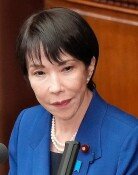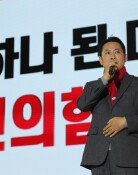What`s behind the recent call rate hike?
What`s behind the recent call rate hike?
Posted October. 05, 2000 19:40,
The recent call rate hike by the financial monetary committee was an overdue action, finally taken by monetary policy authorities to maintain target consumer prices as the financial market has somewhat stabilized. Consumer prices have risen for four consecutive months, and during September rose by 1.5% from the previous month due to the oil price hike. Given this situation, the committee felt that further delaying tactics would worsen the security of the financial market, as inflationary pressures would intensify fueled by the distrust of monetary policies.
Fortunately, the financial market has stabilized somewhat and the international oil price has stopped rising dramatically, thus providing the perfect opportunity for an interest rate hike. Moreover, the Ministry of Finance and Economy, which was severely criticized for dissuading the committee from raising the interest rate last month, took special care not to stir the committee this time.
The Bank of Korea was worried that its interest rate hike would cause market insecurity, as evidenced in its repetitive emphasis that the interest rate hike would not lead to a retrenchment policy by absorbing ample liquidity in the market to restrain aggregate demand. In fact, the interest rate hike did not greatly influence the market, as reflected in the rise of stock prices, whereas interest rates took a fall.
Consequently, market officials and experts remained indifferent to the interest rate hike. They considered the will of the monetary policy authorities to contain consumer prices, nothing more. Some bond dealers reduced the meaning of the interest rate hike by considering it an overdue action finally taken by the authorities to look good.
A dealer from Samsung Investment Trust Management asserted that a mere 0.25% rise in the call rate would not completely quell future insecurities in consumer prices.
A researcher at KDI welcomed the short-term interest rate hike to contain consumer prices but asserted that the increase was not enough to significantly influence the market. He stated that concerns over the insecurity in the market were simply too high and that it would be difficult to expect an improvement in the gap between long-term and short-term interest rates or in the short-term treasury market.
On the other hand, aware of public opinion, President Chon Chol-Hwan of the Bank of Korea asserted that the one-time interest rate hike would not instantly stabilize consumer prices. He indicated that another interest rate hike is inevitable toward the end of this year or early next year, once the market simmers down and reforms are complete.




![넘치는 전재수 과거 사진들…유죄의 증거일까, 무죄의 증거일까[청계천 옆 사진관]](https://dimg.donga.com/c/138/175/90/1/wps/NEWS/IMAGE/2025/12/20/132997378.1.jpg)


